“Those who don’t learn from history are doomed to repeat it” is a truism that is, itself, so often repeated that it has practically lost all meaning. But there’s no better time to learn from history than in a moment of great social and cultural upheaval, and as we all start into an uncertain 2025, we can look back at a spate of incredible history books that were published in 2024. From revisionist history accounts to pop cultural studies, from the significance of the local bookshop to an unlikely exploration of fabric, these books are some of the most fascinating and enlightening reads of the year.
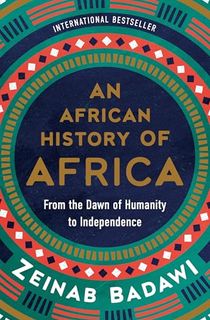
An African History of Africa
“Amazing work has been done in recent years to challenge conventional western views of world history,” writes historian Sathnam Sanghera, for BBC History Magazine, which named An African History of Africa one of the Best Books of 2024, and this “elegant […] authoritative and compelling” book “continues this important work,” by telling the story of Africa through the lens of the people who lived there, rather than the colonizers and enslavers who came in to reshape one of the cradles of civilization.
Across more than 30 African countries, drawing from interviews, oral histories, and archival records, Zeinab Badawi introduces readers to a history that extends back to the beginnings of humanity, and remains vitally alive through empires and tragedies to the present day.
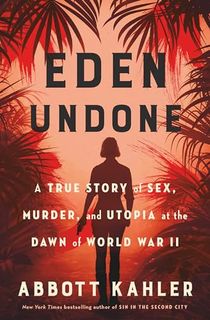
Eden Undone
In the shadow of the First World War, eight people traveled to a small island in the Galapagos archipelago, intent on creating there a utopia. What they found instead was murder, romance, and tragedy in this account that reads like a modern thriller but is drawn from real history that is both “sensational and thoroughly documented,” possibly the author’s “wildest book yet” (Booklist).
It’s no wonder that the same events inspired Ron Howard’s 2024 film Eden, starring Ana de Armas, Vanessa Kirby, Jude Law, and Sydney Sweeney. Readers will find themselves wondering “whodunit” and what became of the eight exiles as they race to finish this unputdownable story.
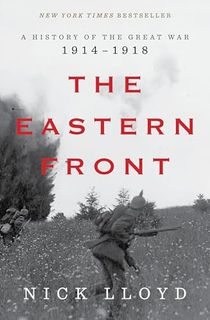
The Eastern Front: A History of the Great War, 1914-1918
So many histories have been written about the World Wars that it seems impossible to touch upon the subject in a new way, yet Nick Lloyd’s “rare and brilliant masterwork” (BBC History Magazine) does just that. Named an Economist Best Book of 2024, this “harrowing […] excellent” (Wall Street Journal) account of the First World War’s Eastern Front is a “masterly synthesis of sources from various countries” (Sunday Times) that shows not only how the war began but how the events on its Eastern Front set the stage for World War II and the Cold War that followed.
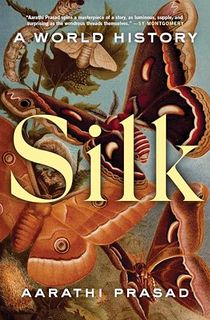
Silk
“Because there is not just one silk, there is not just one story of silk,” author and researcher Aarathi Prasad writes in the introduction of this “vibrant cultural and scientific history” (Kirkus Reviews), which was included in Library Journal's Best Nonfiction of 2024 list.
Smithsonian Magazine alos called it one of the Best History Books of 2024, raving that it “upends common conceptions about silk, moving beyond the well-trodden history of China and the Silk Road to explore lesser-known sources of the fiber.” In recent years, other books on tightly focused topics have shown us that sometimes the best, most vivid, and most revealing histories come from casting a very fine net, and Silk is another striking demonstration.
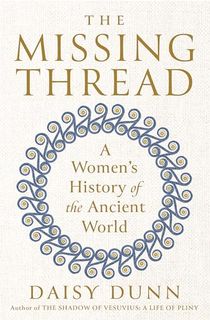
The Missing Thread: A Women's History of the Ancient World
Classicist Daisy Dunn argues that her book isn’t a book about women but is, rather, “a history of antiquity written through women as far as this is possible.” The result is a “thoroughly researched and sprightly” history of the ancient Mediterranean world with “the women added back in, as they always should have been” (New York Times).
From familiar names like Cleopatra and Sappho to lesser-known figures such as Enheduanna, a Sumerian priestess and poet who may have been the world’s first named author, this “engaging book […] surveys three thousand years and argues that women were more integral to the development of the ancient world than prevailing narratives suggest” (New Yorker).
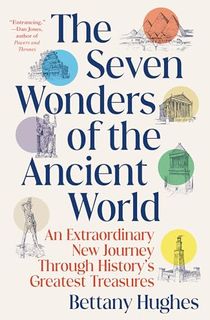
The Seven Wonders of the Ancient World
“Bettany Hughes is the most perfect tour guide I know” raves comedian Stephen Fry, and in this “learned and insightful” (Wall Street Journal) new book, the award-winning historian and broadcaster takes us on a stunning new tour of a lost world.
For thousands of years, the Seven Wonders of the Ancient World have loomed large in our collective imaginations, even though most of them are nothing but dust today. From the latest archaeological discoveries to ancient documents and classical writings, Hughes recreates these lost marvels of the ancient world in a way that brings them to new life for the modern reader—not only showing what the Seven Wonders might have been like in their time, but linking them to our own culture and our contemporary ideals.
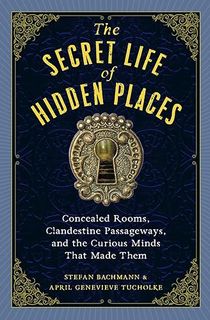
The Secret Life of Hidden Places
Few things captivate the imagination quite like magnificent buildings and architectural wonders—especially ones that we can’t quite understand. These are at the heart of this “spellbinding tour” through some of the world’s most fascinating buildings, such as the Winchester Mystery House in San Jose, California, which was under constant construction for nearly four decades; and a Portuguese well built by a secret society to hold strange initiations.
From a secret passageway in the Monte Sainte-Odile Abbey to a 17th-century garden of monsters, the locations described and photographed in this book are unlike any others in the world, and will take readers on an unforgettable journey through the secrets of the past.
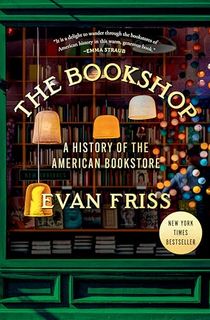
The Bookshop: A History of the American Bookstore
In this New York Times bestseller, named one of the Must-Read Books of 2024 by Time magazine, author Evan Friss composes a “heartfelt, essential love letter to the literary sanctuary of bookstores and the people who run them” (People magazine).
Throughout American history, bookstores of various kinds and sizes have played a major role in shaping American literary culture, and in this “engaging” (Wall Street Journal) popular history, Friss combines oral histories, archival materials, interviews, diaries, letters, and even municipal records to create a portrait of the changing face of the local bookstore, and how it reflects American society and our cultural values.

American Scary: A History of Horror, from Salem to Stephen King and Beyond
Cultural historian and Columbia professor Jeremy Dauber has made a name for himself as one of America’s leading historians of popular culture, and in this “book that could launch a thousand reading lists” (Los Angeles Times), he takes readers on an up-all-night journey through the history of American horror, from the Salem witch trials and the stories of Edgar Allan Poe through the Universal monster movies, the books of Stephen King, and the modern-day parables of Jordan Peele.
The result is a book that is “clear-eyed, unflinching, comprehensive in scope and detail, and entertaining as hell” (Paul Tremblay, author of Horror Movie), combining cultural criticism with American history for a deliriously unforgettable read.









